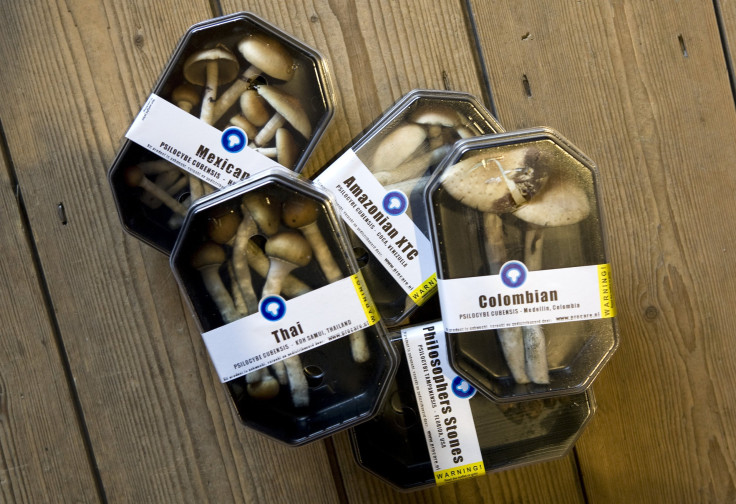MDMA And Psychedelics For Free? Researchers To Use These Drugs For Therapy, Not Tripping

You may have heard about the recent study that showed psychedelic drugs did not increase the risk of mental-health problems. The authors of it would like to take their research one step further and give away LSD, MDMA and psilocybin for free as a form of therapy. Pal-Orjan Johansen, a clinical psychologist, and Teri Suzanne Krebs, a research fellow at the Norwegian University of Science and Technology, discussed their research and the nonprofit organization they co-founded during an Ask Me Anything (AMA) session at Reddit Friday.
In their study, Johansen and Krebs analyzed data of the U.S. National Survey on Drug Use and Health from 2008 to 2011. Among the 135,000-plus participants who responded the survey, about 14 percent said they had used certain psychedelics -- LSD, mescaline, peyote or psilocybin -- at some point during their lifetimes. The researchers concluded this subgroup did not have an increased risk of developing schizophrenia, psychosis, depression, anxiety or eight other markers of mental-health problems.
However, they noted certain other psychedelics, such as ketamine and phencyclidine (PCP), have been shown to be addictive and have adverse health effects, which is why their research focused on the so-called classic psychedelics. “Psychedelics are psychologically intense, and many people will blame anything that happens for the rest of their lives on a psychedelic experience,” Krebs told Nature.
For Johansen, the research is personal. He discussed how he employed MDMA and psilocybin to treat his alcohol abuse and post-traumatic stress disorder with Norway’s VG Helg (VG Weekend Magazine). By the time he was 13, he had lost his maternal grandparents and his paternal grandfather. Shortly afterward, Johansen’s older brother unexpectedly died from heart failure. “In the summer, he and I would camp out alone in the upper part of the Nidelva river, fishing and enjoying each other’s company for weeks on end. I found comfort in his sense of security, and we stayed up all night, exchanging stories,” Johansen told VG Helg.
During his college years, Johansen developed a drinking problem, but his experience with psychedelics while studying psychology at the Norwegian University of Science and Technology helped him cope with his past. “I quit using alcohol altogether. I had to take care of myself when I took mushrooms, and being unbalanced was not an option. Psychedelics led me to examine the destructive behavioral patterns that I was unable to face before,” he said. His use of MDMA while studying at Harvard University helped him talk about his past after several failed attempts at psychotherapy.
During the Reddit AMA, Johansen and Krebs discussed not only their research but also their nonprofit organization EmmaSofia, which describes itself as working “to increase access to quality-controlled MDMA and psychedelics for medical, scientific and other legal purposes.”
The researchers have launched an Indiegogo campaign to raise money to produce pharmaceutical MDMA and psilocybin. “We will offer MDMA and psilocybin for research, but also for medical practice outside of research and for any other legal uses,” Krebs said. “Under the [United Nations] 1971 Convention on Psychotropic Substances, MDMA and psilocybin can be used in medical practice (outside of a clinical trial). Most countries have regulations modeled after this treaty.”
© Copyright IBTimes 2025. All rights reserved.





















